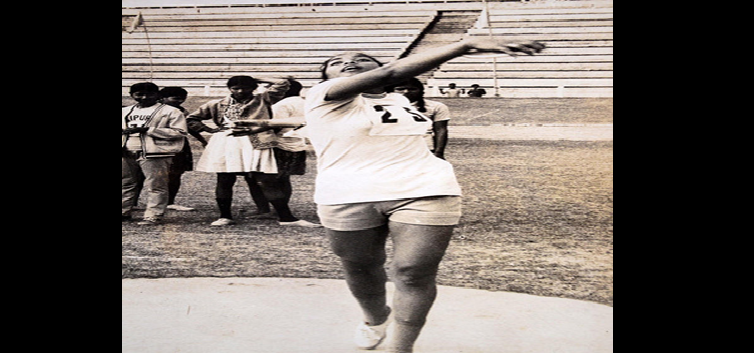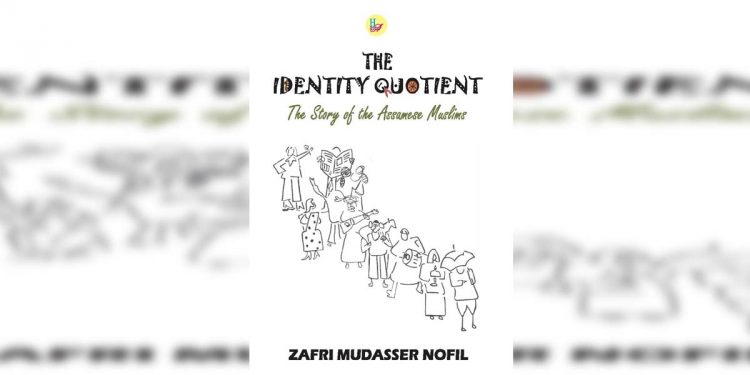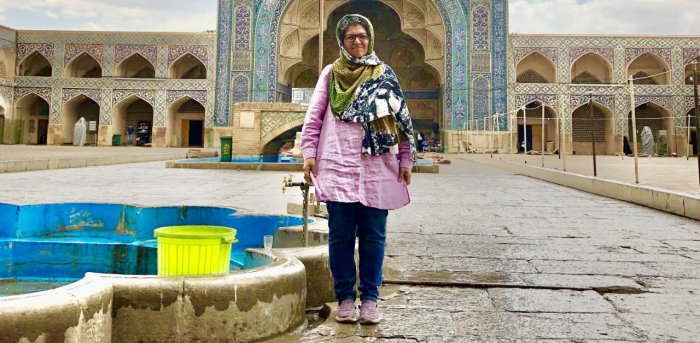Guwahati, ASSAM :

Guwahati :
The strains of Assam’s state anthem ‘O mur apunar dex’ marked the conclusion of the memorial meeting held in memory of one of the iconic daughter of Assam, late Yamin Hazarika.
The second Yamin Hazarika Woman of Substance Award 2016 was presented to Tayabun Nisha, former athlete of Assam who represented India in the 1982 Asian Games. She is the second recipient after noted author and columnist Indrani Raimedhi who received it last year. This award was institutionalised to honour late Yamin Hazarika, DCP, Delhi Police, who passed away while still in service. She was the first woman police officer from Assam, a trendsetter in those times. The award is given by Women’s Hub, a collective of women professionals from around the country.
This year’s award ceremony was held on her 17th death anniversary (24 July) at Blue Paradise in Six Mile, Guwahati amidst an august gathering. Dr. Nahid Islam, Consultant Psychiatrist, GNRC, in her welcome address, gave a brief overview of Women’s Hub. She said that this award is given to honour and appreciate women from diverse fields who have made a mark against all odds.
The function opened with three books written by members of Women’s Hub being released by the guests. This event was co-ordinated by Dr. Shabnam Choudhury, Dental Surgeon. Noted writer Indrani Raimedhi released the book Aasroi written by Nazin Ahmed. Ahmed became emotional when talking about her late father who had inspired her to write.
Santikam Hazarika released Marjina Haque’s book Anutapto Prabansak, which is a set of short stories based on real-life stories. Dr. Dhruvajyoti Saikia, VC, Cotton College State University, released a book of poems by Tinat Atifa Masood. The collection, titled ‘10 on 20’, has random thoughts on love and drug addiction.
Sabrina Iqbal Sircar, Department of Political Science, Cotton College, moderated the Panel Discussion on the theme ‘Women: Breaking Stereotypes.’ The panelists were Nayama Ahmed, Assistant Jailor, Tezpur Central Jail, Darshana Sengupta, first Car Driving Trainer in the Northeast, Megha Kashyap, Program Coordinator for UTSAH, a child rights organisation, Afrida Hussain, programme head of Radio Mirchi, North East, Taanishi Inaam, Entrepreneur and Purnima Devi Barman, wildlife activist.
Nayama Ahmed spoke of the challenges she faced when taking up a job that was traditionally given to men. She said that one has to rise above the obstacles that come in the way of fulfilling one’s responsibilities.
Darshana Sengupta spoke of the need for women to take an active interest in their own well being. She said that she started a women’s car rally to inspire women to live life fully.
Megha Kashyap spoke of the challenges she faced when she gave up a secure future in a job to take up social work. She said women must come out of the restrictions imposed by society.
Taanishi Inaam quoted Malala Yusufzai who said, “I raise my voice not to shout but for the voiceless to be heard.” She shared a few tips on how to be successful: do not stuck with micro management, do not feel guilty about your work, and have different dreams to strive for.”
Purnima Devi shared her experiences during her struggle to save an endangered bird Greater ‘Adjutant’ Stork or Hargilla, in Assam. She spoke of the physical hardship she had to face and sacrifices she had to make to commit to such causes.
While summing up, Sabrina Iqbal Sircar asked the audience to reflect on who creates stereotypes and how they permeate in society. She said one should be aware of how such stereotypes hinder women’s development.Yasmin Ahmed, sister of Yamin Hazarika, Indrani Deb, Chairperson of FICCI FLO, Swabera Islam, academician, Jabin Rahman Ghosh Dastidar and Huma Hazarika Sharma, daughter of Yamin Hazarika, felicitated the panelists.
Nellie Ahmed Tanweer, eminent educationist shared her impression of the late Yamin Hazarika, her cousin and friend, who she knew very closely. She recalled how, when going out for a family dinner, they spotted a man lying on the road fighting for his life and Yamin Hazarika immediately stopped the car and rushed the man to hospital. She said that for her cousin, work always came first. The late Yamin Hazarika was known since childhood for her quiet demeanour, hard work and for being a vivacious reader. Tanweer hoped that younger generations will be inspired to follow her example and make the nation proud.
Vikram Hazarika Sharma, Yamin Hazarika’s son, recalled the precious time that he and his sister spent with their mother. He said that they never felt neglected even though their mother was a busy police officer in Delhi.
Reshma Shah, Education Consultant, introduced the awardee Tayabun Nisha. She said that it was the undying spirit and hard work of women like Tayabun Nisha who can be an inspiration for younger generations.
The awardee was presented with a shawl, a salver and a bouquet. In her acceptance speech, Tayabun Nisha said that she was touched by the gesture. She recalled her early days when she had to look after her younger siblings after her parents passed away. She also shared her adventures when travelling alone to different places to play. She advised the younger generation to lead a fit and healthy life by doing exercise regularly. She suggested that such functions should be held at different educational institutions to inspire the younger generation.
Sheila Bora, noted historian pointed out that the women’s movement was just taking shape throughout the world when women like Late Yamin Hazarika broke many stereotypes and joined a profession which was dominated by men. She said that the late Yamin HHazarika’s life will inspire many to follow in her footsteps. Dr. Dhrubajyoti Saikia, the chief guest, said that backward societies such as tea tribes and scheduled castes need to be empowered. He said that society needs more Yamin Hazarikas to combat the problems in society. Indrani Raimedhi, in her speech, said that one should also try to understand the forces that drive women to commit crimes. She announced that she will be dedicating her next book in the memory of Late Hazarika.
Anjuman ara Begum, lawyer and activist recalled the struggles she faced when working on the ground with different communities in different parts of the world. Tinat Atifa Masood, the anchor for the evening, thanked everyone and advised the young girls present in the audience to be inspired to achieve more. Mehbooba Begum, Deputy Secretary, Legislative Department, Government of Assam delivered the vote of thanks.
(Reshma Shah is an education consultant based in Guwahati)
___________________________________________________________________________
Love of Chocolates Made Tayabun Nisha An Athlete, And One to Reckon With!
ABDUL GANI
Guwahati :
She is as strong as ever. Meet Assam’s first ever female athlete to win a medal at the national level. She is Tayabun Nisha who broke a national record in discuss throw in 1971 and represented the country in several international events across the globe.
“Even today, I want to achieve so many things. Maybe I’ve again too many challenges. But I will overcome those,” Nisha told Thumb Print.
Though it was the love for chocolates which dragged her to the field of athletics and she went on to become the first female athlete to win a medal for Assam at the national platform. But later it is her determination and toughness to see off the challenges which sailed her through for success.
On receiving the ‘Yamin Hazarika Woman of Substance Award 2016’, she is elated. “What else I can ask for? It’s a great feeling for me. I wish people know more about Yamin Hazarika. She can be a source of inspiration for many. I feel myself to be a part of it. I also thank the organizer for choosing me the worth of it,” said Nisha.
Moving on her past, the champion athlete said that the road was never been an easy one. “When I look back to my childhood, it seems so funny. There used to be some village level competitions in my native place at Dhaiali in Sivasagar district on various occasions like Independence Day, Republic Day or on Bihu. Those days the winners used to get a box of chocolates. The love for the chocolates made me work harder to win medals as we could not afford chocolates. But gradually, I realized winning a medal also gives a recognition and later on I took it seriously,” Nisha said.
Belonging to a conservative Muslim family was another hurdle for her to take part in sports activities and all these things could not deter her from the goal.
“Losing my parents at an early age was a setback but it gave me the courage to fight back the odds in life. I lost my father in 1970 when I was a class VIII student. It doubled the responsibility on my shoulders to look after my siblings. There were people in our neighbourhood who used to say things against a girl going out to take part in outdoor activities. But simply didn’t care because I knew in the hour of crisis these people never came forward to help us,” said Nisha. But earlier, her father was encouraging.
All these developments always motivated her to be even stronger. “We did not have much facility to practice but I used to be prepared mentally always. I knew only my dedication can lead me to the success,” she said.
Then even when she was going through a bad phase, Nisha started working for the Railways at a salary of Rs 250 in 1970s.
In 1971 Nisha took part in the 9th Inter State Athletic Meet to make her debut in Ahmedabad. Bronze in that tournament created a history in sports as she became the first woman athlete from the state to won a medal in a national championship.
In 1974 in Jaipur broke a 12 year old national record in discuss throw throwing a distance of 29.32 metre.
In 1982 Asian Games she missed medals but it did not hamper her mental strength.
“Though we worked hard before the games, I could not win a medal. But I was upset as I knew the reality. We were not up to the mark of other countries,” she said.
But a thought always haunts her that if they were provided better facilities, there would have been more medals. “We never had proper training. We did not have idea about the proper diets. But our contemporaries from other countries were well ahead than us. So I sometimes feel that we could have done much better,” Nisha added.
Now, she is planning to set up a sports academy and hostel especially for girls who are from poor families.
“As we have experienced lack of proper facilities for the rural girls, I’m planning to start a hostel where a young will be taken care of to build her sports career. But I’m not sure when we can start it,” she said.
On the present generation, the veteran athlete said that the determination is must. “One has to be determined to achieve. But unfortunately that kind of determination and hunger for success is missing among the today’s youngsters,” she said.
___________________________________________________________________________
source: http://www.thecitizen.in / The Citizen / Home> Border / by Reshma Shah / Guwahati – Tuesday, July 26th, 2016











